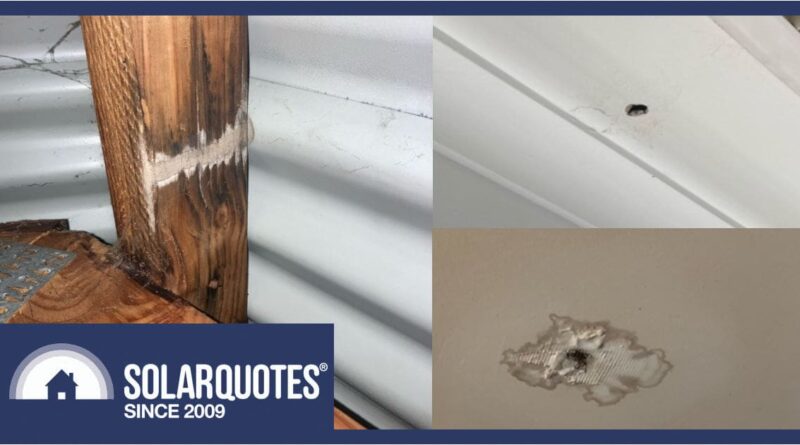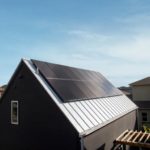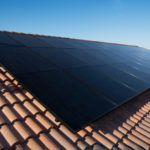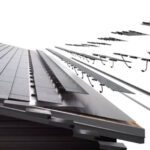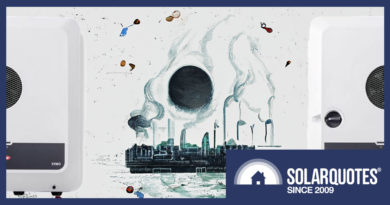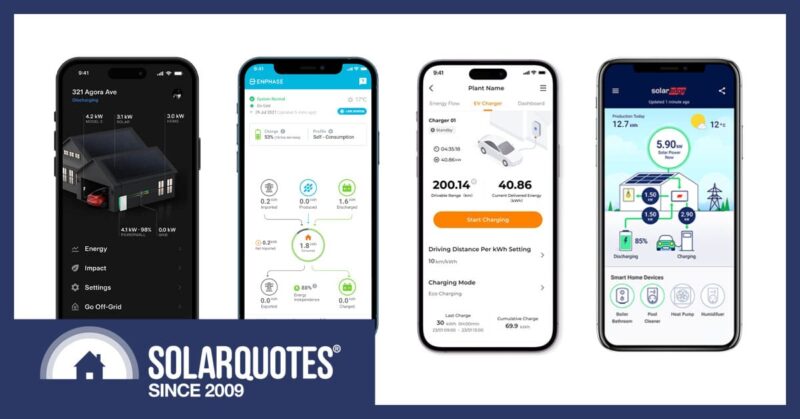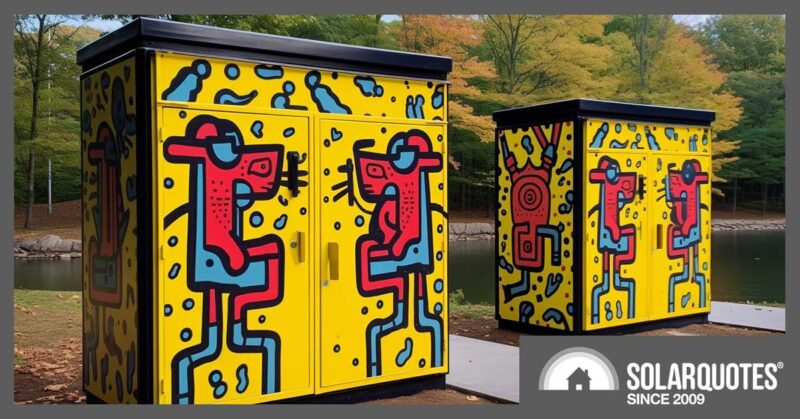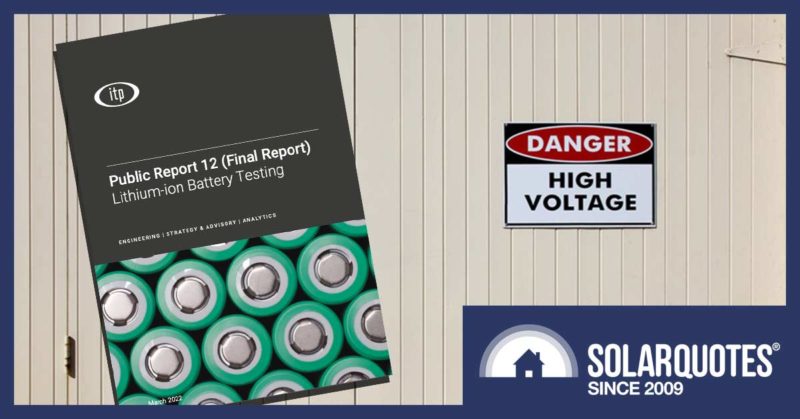When Solar Panels Are The Scapegoat For A Leaking Roof
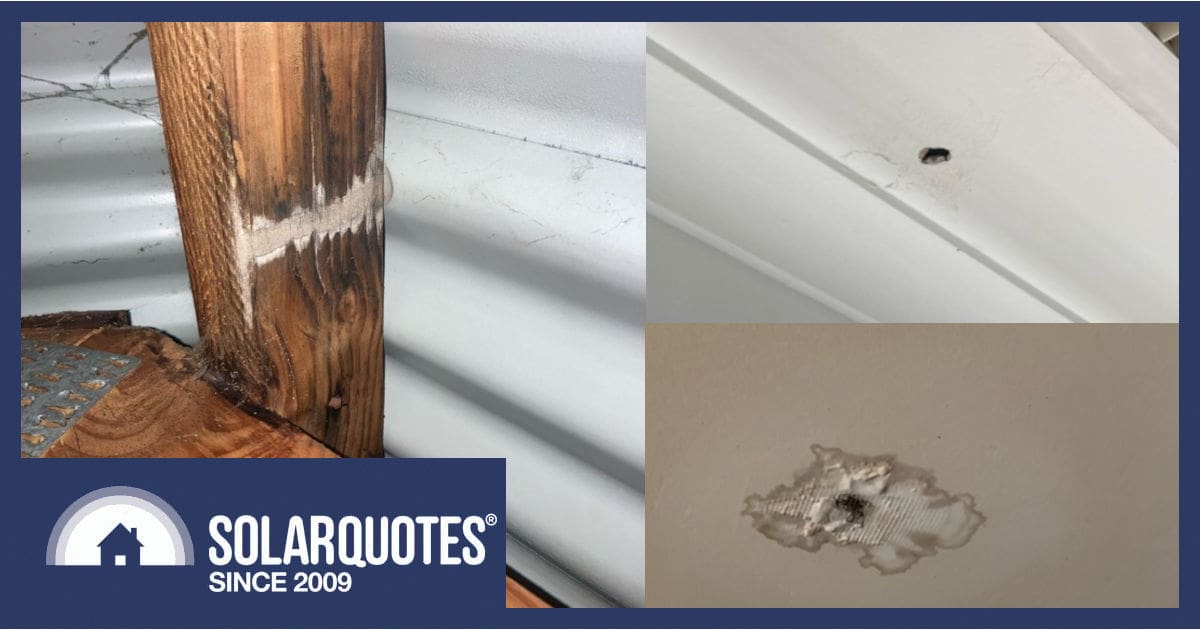
Recently, at SolarQuotes, we hit a snag: Jono, our marketing guru, has been dodging drips from his ceiling in recent years, suspecting his solar setup might be the culprit. It was time for some detective work.
With two decades of roofing under my belt, I’ve seen it all: water sneaks in where you least expect, gravity be damned. In the coming weeks, we’ll dive into how and why this happens, solar panels or not. Kicking off with the quirks of iron roofs and the extra twists strata ownership brings.
Troubles With A Leaky Townhouse
Jono, like many Australians seeking affordability near the city, opted for a two-storey townhouse. However, typical of strata living, he owns the townhouse and solar panels but not the roof.
The Complaint
Jono faced an erratic drip leak; light rain barely mattered, but heavy downpours or sustained rainfall would inevitably bring water indoors.
He got a roofer out to see what was going on. This supposed expert only went up on the roof, and didn’t go inside the roof cavity (bloody amateur, if you ask me). Ultimately, he blamed the brackets used to fix the solar array.
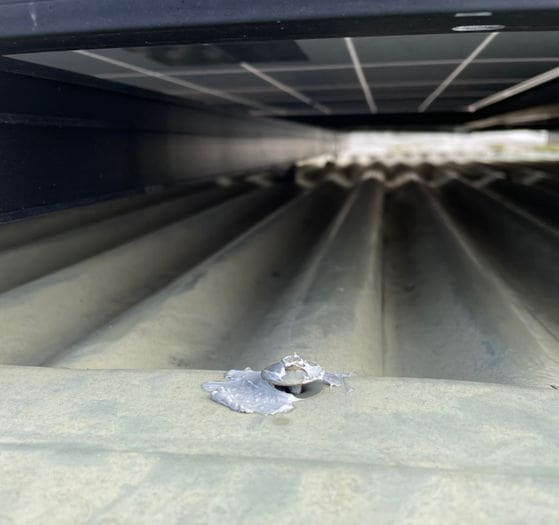
This nail has had some silicone sealant smeared on it, which appears to be acting as a funnel
Was Solar To Blame?
Armed with the best knowledge a plumber could offer, Jono rang SEM Group, his solar electrician, to get someone to check the installation. The system was under a workmanship warranty, and of course, Jono expected a good installer to stand by their handiwork.
SEM advised that if the problem were not due to the solar install, then a callout fee of $180 would apply.
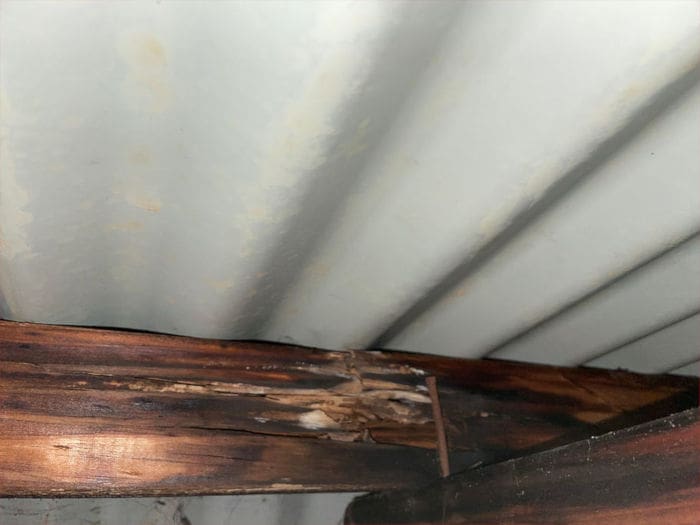
Roof purlin is going rotten because it’s continually being doused with water. Given a long downpour the water will make it through the roof and through the ceiling.
Solar Experts Found The Real Problem
The experts from SEM emphatically pointed to a raised roofing nail as the centre of the problem.
Inside the roof space, they could clearly see where the water had leaked in and discoloured the purlins.
Not all of this discolouration would indicate a leak from outside — you’ll see witness marks on the timber caused by condensation on the underside of the roof. However, from the photo above, it’s clear this leak has been ongoing for a long time and has started to rot the timber itself.
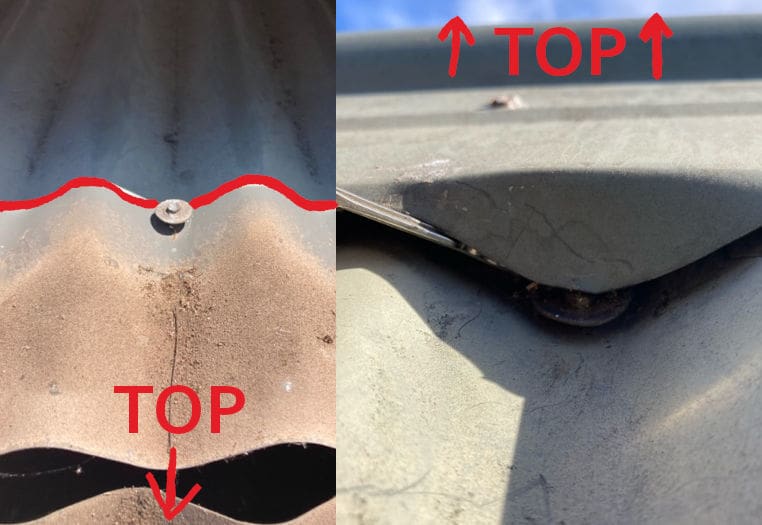
On the right we see the ridge cap is ‘scribed’ so it follows the corrugated profile. Excellent work that’s undone by putting nails in the lower part of the flute, as seen on the left when the cap is removed.
Nailing The Problem
Roofing nails use a bellville washer to hold the iron tight to the roof. However, after a few years, the nail will pull out of the timber, and banging it back in with a hammer doesn’t help much.
What does work is replacing nails with screws, which stay tight and have a neoprene rubber seal. Nobody builds new houses with nails anymore, and indeed, you can’t use them on steel purlins.
It looks like somebody’s put some silicone sealant around the nail on Jono’s roof, but sealant doesn’t help when the nail simply pulls out of the timber again. What’s worse is that the sealant has formed a funnel, literally bringing more water in.
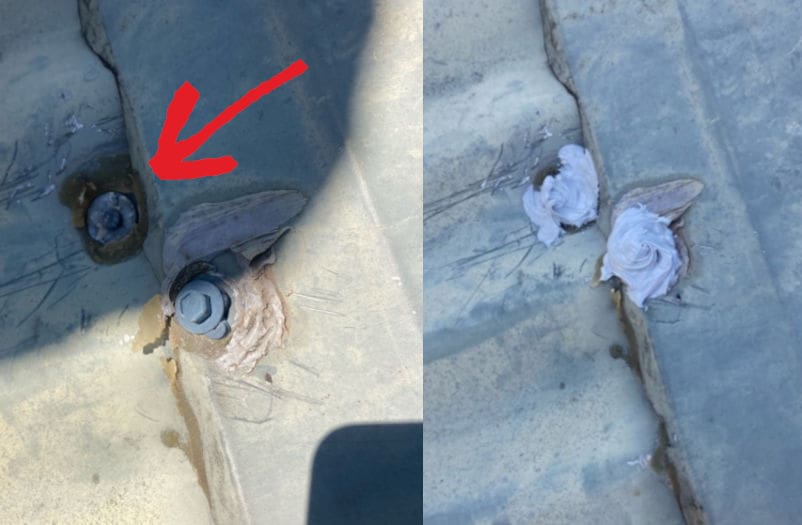
The red arrow indicates poor roofing practice. That nail shouldn’t be in the bottom of the flute and exposed. Obviously there has been silicone applied before, then a screw, and now more silicone snotted onto the same problem. If it were my roof, I’d throw the person who did this off of it.
Strata Shenanigans: Who Pays For A Leaky Roof?
This is where the challenges of a strata management company come into play. The company balked at paying the installer’s callout fee, arguing that while they might be responsible for the roof, Jono should bear responsibility for everything involved with the solar.
However, it was easy to prove that the roof was leaking, and that it had nothing to do with the solar array. So, in the end, the strata people had to send their own repairer to fix Jono’s roof — as well as another in the same complex that didn’t have solar.
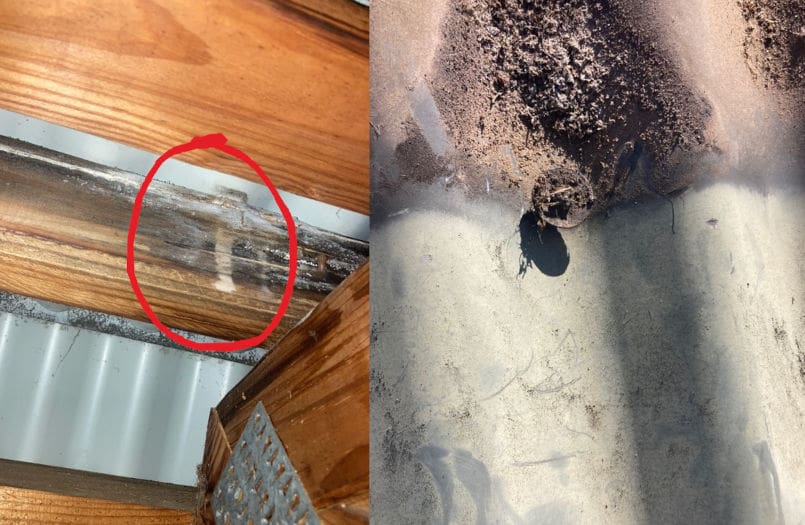
A classic water stain on the lower side of a purlin. On the right, now the ridge cap is removed, we can see having the nail in the wrong part of the roof was the cause.
Pinpointing Leaks Isn’t Always So Easy
Intermittent roof leaks aren’t always easy to find, especially if sarking is involved. Having a secondary membrane under the roof can help prevent water and condensation from entering the building, but it can also divert water in curious ways.
Steel purlins can also be a trap because they tend to form a gutter. It’s not unheard of for purlins to carry water from a leak at one end of a building through to the other.
Water can leak through a poorly made penetration, or it can be windblown up underneath a flashing or valley, then it will wick down the underside of the cladding, travel along a purlin and run down a rafter.
The route is often devious, and getting somebody inside the roof space to watch it happen during a downpour can obviously be pretty tricky.
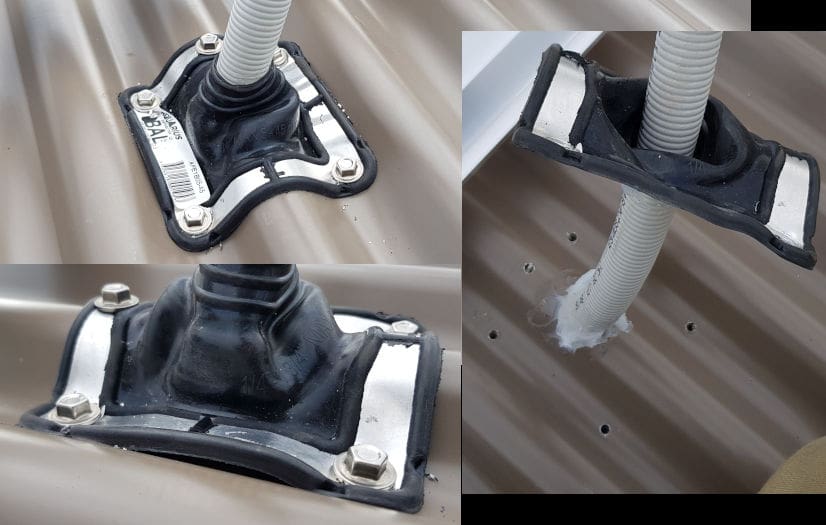
This was a brand new roof, ruined by one of the idiots I worked with. He sealed the conduit alright, then made four leaks in the roof with screws in the down flutes.
Silicon sealant and rubber flashings have largely removed the craft from waterproofing. And sadly, a lot of trades don’t think much about how to make something fundamentally waterproof, relying instead on the catch cry: “Do your best and silicon the rest”.
One of the worst I diagnosed was from a poorly installed solar power system using novel framing on a curved roof. They’d driven screws through the bottom of the corrugated roof profile, meaning it wasn’t mechanically waterproof but relied on silicone sealant.
That water traversed some nine metres of purlin, before dripping straight into a laptop PC. A silly mistake and an expensive lesson for all concerned.
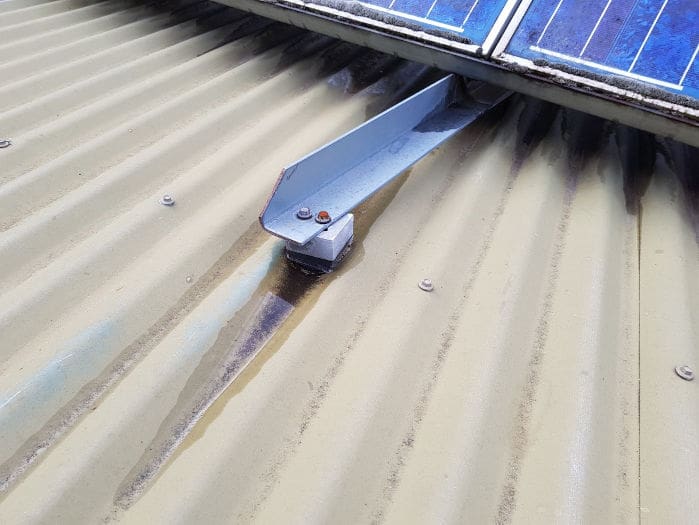
Dam building is dumb
What To Do If You Spring A Leak
Roof leaks can be frustrating to find. Trust me, I have been in the roof with a customer hosing water from the outside.
I’ve even had a customer with a new house cut a second access hole into the ceiling space, as it was the only way he could poke his head up as soon as a rainstorm hit.
Sometimes, leaks are caused by substandard solar installations. But, as in Jono’s case, often a solar array is a red herring in the investigation; an easy scapegoat.
So, when you’re getting solar, I can’t understate the value of quality workmanship from a well-established company.
Jono’s issue was relatively easy to diagnose and someone else’s problem to fix. You might not be so lucky.
Original Source: https://www.solarquotes.com.au/blog/solar-panels-leaky-roof/

